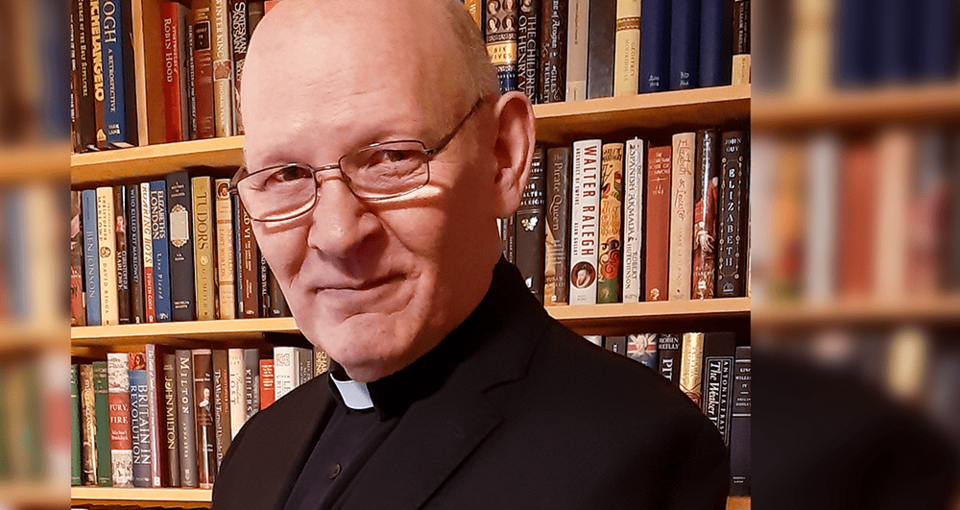I suppose that there is something appropriate about a census discussing religion. It was the Roman demand for a census that led the holy family to travel, even with Mary so pregnant with the baby Jesus. That, at least, is how the story goes.
Two thousand years later, last month’s census from Statistics Canada (not the Roman imperial government) shows that a third of Canadians have no religious affiliation, and that the number who identify as secular or atheist has doubled in 20 years. While some people are leaving religions such as Islam and Hinduism, the trend in those often immigration-based faiths is growth rather than decline. Meaning that the most significant reduction is within Christianity. Fifty-three percent of the population now follow various churches, down from 67 percent in 2011 and a huge 77 percent in 2001.
Which has led to many Christian leaders explaining how concerned and even shocked they are. Leading me to wonder why they’re so bloody concerned and shocked! Because people aren’t abandoning Christ, they’re abandoning organized Christianity, and who can blame them?
There are seemingly endless stories of abuse, examples of hypocrisy, gruesome tales of historic oppression, anti-vaccination hysteria, mobs proclaiming their faith as they scream support for Donald Trump in the US and rightist leaders in Canada, and celibate men telling women what to do with their bodies or condemning people for their God-given sexuality.
To a great many Canadians, Christianity has become another word for conservatism. We have think tanks and colleges that describe themselves as Christian but seem far more concerned with having Tories elected than the rebel Jesus revealed. Sometimes I am stunned at how blatant and unapologetic these people are in their thinly disguised religiosity. I’m sure they believe, but how they can hold to those beliefs genuinely disturbs me.
That, of course, is not the church I know and love. I see daily sacrifice, care, hard work for the poor and marginalized, and a genuine commitment to the teachings of a 1st-century Jewish man who was born in poverty to parents who were refugees, who owned nothing, lived with the rejected and powerless, warned and criticized the rich and rigid, and preached a permanent revolution of love, grace, and forgiveness.
We have think tanks and colleges that describe themselves as Christian but seem far more concerned with having Tories elected than the rebel Jesus revealed
Here’s the thing. Whenever I write or speak about this man who — I believe — came as the Son of God for all of us, people react not only positively but also with amazement. “That’s not the Christianity I was taught,” or, “If that was true, I’d come to church.” But it is true, meaning that too many churches are promoting religion rather than Jesus.
So this new announcement of what should have been obvious to anybody with open eyes shouldn’t be intimidating but encouraging. The playing field is being levelled, nothing can be taken for granted, and the message of the Gospels has to be explained anew. That’s excellent news. Just as in the early church, before it was corrupted by imperial adoption and soon became an instrument of persecution and forced conversion, we need to persuade by compassion and example.
Christians must get their hands dirty, sometimes literally, but never with aggression. As Mahatma Gandhi said, “The rose doesn't have to propagate its perfume. It just gives it forth, and people are drawn to it. Live it, and people will come to see the source of your power.” The evangelism of the rose.
Jesus didn’t speak of abortion and homosexuality, didn’t side with the rich, and certainly wasn’t a friend to those who judge the different, desperate, or destitute. He called for a world turned upside down yet so many of his ostensible followers seem intent on keeping it just as it is, or used to be.
So it’s no wonder that people identify as atheists, or have left churches. All I would ask and pray is that they give not churches but the rebel Jesus another chance. Virtues rather than vestments, giving rather than getting, and becoming part of a great dance of liberation that can and must free and fulfill all of us.
He was crucified not for complacency but for offering a vision that terrified those who had moral, political, financial, and religious investments in a stale and failed world. That world is still with us, and unless Christ-followers present the joyous alternative, the next census will show further and deeper decline. Don’t blame others for our failures. Be like the rose, be like Jesus. It’s not easy but then it really wasn’t supposed to be.
